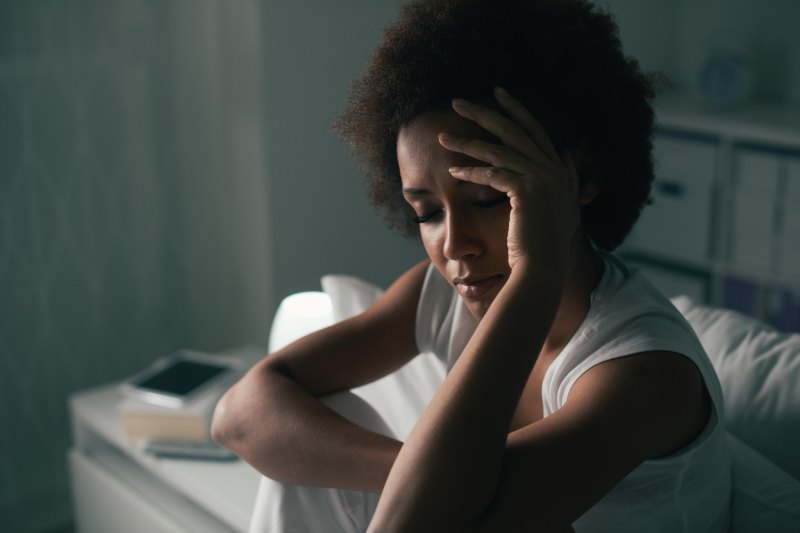A recent study indicates that a number of psychiatric diseases may be brought on by or made worse by disruptions in our circadian rhythms and sleep habits. The study highlights how treating sleep-circadian disruptions may help alleviate mental health conditions.
The experts focused on adolescents and young adults with psychiatric illnesses as they evaluated recent research on sleep and circadian aspects. Sleep disturbances and irregularities in circadian cycles are likely to happen during this period.
What Are Disruptions In Sleep-wake Cycles?
Sleep-wake cycles are disturbed when there are sleep-circadian abnormalities, which affect the time and quality of sleep. These disruptions frequently cause problems going asleep, remaining asleep, or waking up too early.
Everybody’s body follows a circadian cycle. The 24-hour cycle of sleep and wakefulness is determined by this biological clock. An irregular rhythm can have an impact on mental health and result in problems like anxiety or sadness.
Relevance Of The Study
“Sleep-circadian disturbances are the rule, rather than the exception, across every category of psychiatric disorders,” according to Dr. Sarah L. Chellappa of the University of Southampton.
“Sleep disturbances, such as insomnia, are well understood in the development and maintenance of psychiatric disorders, but our understanding of circadian disturbances lags behind.”
“It is important to understand how these factors interact so we can develop and apply sleep-circadian interventions that benefit the sleep and mental health symptoms of patients.”
Sleeplessness and Mental Health Conditions
Compared to the general population, those with mental health conditions experience insomnia significantly more frequently. It affects more than half of those who are in the early stages of psychosis, when it is most common.
Moreover, a considerable proportion of individuals suffering from mood problems also have hypersomnia, which can result in a tough cycle of extreme daytime sleepiness and difficulty falling asleep at night.
Circadian rhythm sleep-wake disorders (CRSWD) are clarified by the study. The results indicate that a significant proportion of patients suffering from mood disorders report having irregular sleep-wake cycles. This demonstrates the significant influence that body clock mechanisms have on mental health issues.
Fundamental Mechanisms
The review explores the underlying processes of sleep-circadian disruptions in mental health conditions. Adolescence is recognized as a crucial time because of physiological and behavioral changes that impact sleep.
“This variability in the duration and timing of sleep can lead to a misalignment between our body clock and our sleep-wake rhythms can increase the risk of sleep disturbances and adverse mental health outcomes,” said Dr. Nicholas Meyer of King’s College London.
The effects of genetics, light exposure, neuroplasticity, and other variables were also studied by the researchers. The results showed that sadness, mood instability, and neuroticism are more common in people with a genetic predisposition towards a lower change in activity levels between wake and rest periods.
Inventive Therapies
In addition to identifying the issue, the study suggests possible fixes. “Targeting sleep and circadian risk factors presents the opportunity to develop new preventative measures and therapies,” said Dr. Renske Lok from Stanford University.
“Some of these are population-level considerations, such as the timing of school and work days, or changes in the built environment to optimise light exposure. Others are personalized interventions tailored to individual circadian parameters.”
Research has demonstrated the beneficial effects of light therapy and cognitive behavioral treatment for insomnia (CBT-I) on mental health conditions. The timing of meals, exercise, and medication was also discovered by the researchers to be a beneficial treatment.
“Collectively, research into mental health is poised to take advantage of extraordinary advances in sleep and circadian science and translate these into improved understanding and treatment of psychiatric disorders,” said Dr. Chellappa.

 Diabetology2 weeks ago
Diabetology2 weeks ago
 Diabetology2 weeks ago
Diabetology2 weeks ago
 Diabetology2 weeks ago
Diabetology2 weeks ago
 Diabetology1 week ago
Diabetology1 week ago
 Diabetology2 days ago
Diabetology2 days ago
 Diabetology2 days ago
Diabetology2 days ago
 Diabetology2 days ago
Diabetology2 days ago
 Diabetology6 hours ago
Diabetology6 hours ago















